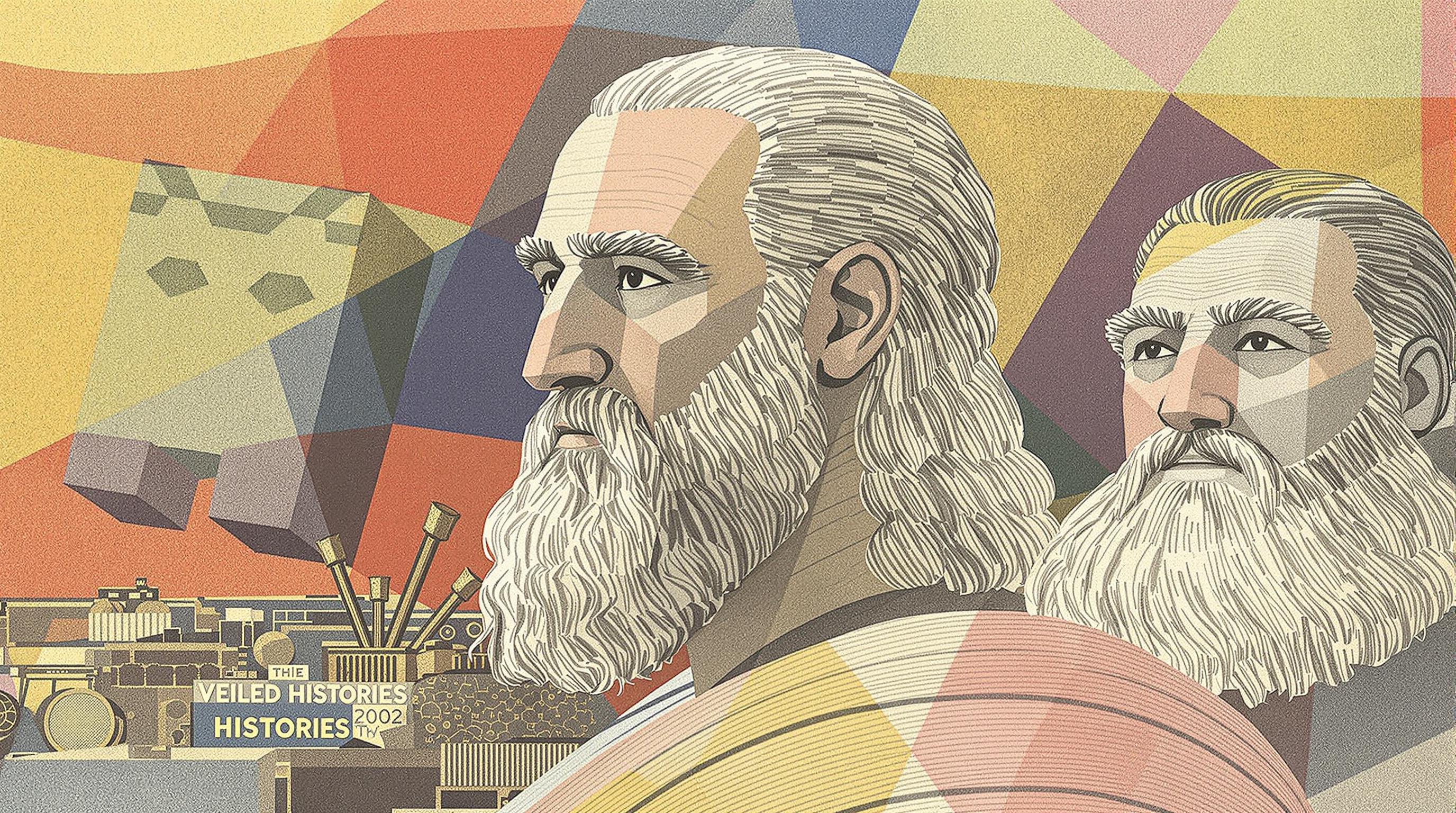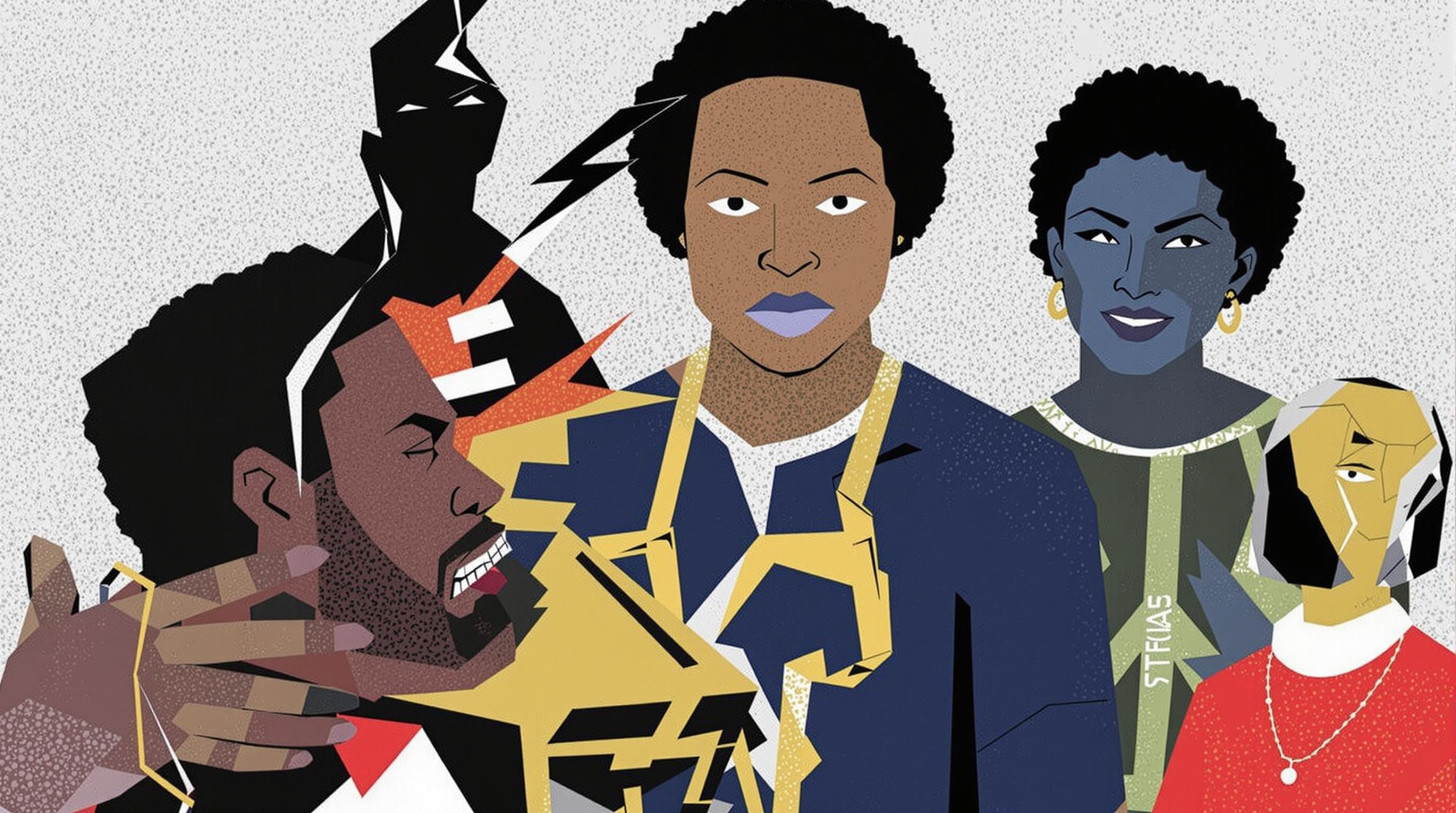Related Articles
- Reviving Ancestral Wisdom: How Outdated Superstitions Can Shape Contemporary Mental Health Practices
- Veiled Histories: How Little-Known Figures from the Past Can Transform Contemporary Leadership Approaches
- The Art of Disruption: How Past Rebellions Shape Today's Entrepreneurial Spirit
- Lost in Translation: The Surprising Role of Language in the Evolution and Misunderstanding of Global Currency
- Currency as a Canvas: Exploring the Intersection of Politics, Propaganda, and Artistic Expression in Monetary Design
- Unmasking the Shadows: How Currency Forgers Shaped Financial Trust and Safety Through the Ages
The Art of Disruption: How Past Rebellions Shape Today's Entrepreneurial Spirit
The Art of Disruption: How Past Rebellions Shape Today's Entrepreneurial Spirit
Throughout history, rebellion has served as a powerful catalyst for innovation and entrepreneurship. The art of disruption transcends mere upheaval, weaving a rich narrative that fuels the entrepreneurial spirit we see today.
Historical Backdrop: The Roots of Rebellion
To understand the modern entrepreneurial landscape, we must first dive into the annals of history. Rebellions, from the Boston Tea Party to the Industrial Revolution, have not merely been about expressing discontent; they have also been about creating new paths, much like the contemporary startup culture. For instance, the Boston Tea Party (1773) wasn’t just an act of defiance against British taxation—it sparked a whole new era of American entrepreneurship, leading to innovations in manufacturing and trade.
The Role of Rebellion
Rebellion often arises out of necessity. As Harvard Business Review notes, “Disruption happens when entrepreneurs seize an opportunity to address pain points in the market.” When ordinary people, entrepreneurs included, are subjected to limitations—be it governmental, societal, or technological—they tend to rise up, catalyzing waves of creativity. For example, during the 1960s counterculture movement, artists and musicians rejected mainstream norms, setting the stage for the tech boom that followed. Think about it: without the rebellious spirit of those times, we wouldn’t have the digital revolution that has transformed how we do business today.
Modern Examples of Disruption
Fast-forward to today, and we see the embodiment of this rebellious spirit in startups that challenge established industries. Companies like Uber and Airbnb have rewritten the rules of transportation and hospitality, respectively. As of 2022, Uber was reported to operate in over 900 metropolitan areas worldwide, further evidencing the business model’s appeal. What’s fascinating is that both companies emerged from dissatisfaction with existing systems—ridesharing was too expensive and difficult to access, while lodging was often limited to hotels.
Innovators as Rebels
But let’s dig deeper. Steve Jobs and Apple, anyone? Jobs turned the tech world upside down not merely by creating gadgets but by ushering a new lifestyle approach. His refusal to conform to traditional computer design standards led to the creation of the Macintosh, which has since paved the way for modern user interfaces. It’s a classic case of a rebel with a cause! Jobs once said, “Innovation distinguishes between a leader and a follower,” encapsulating the essence of disruptive entrepreneurship.
Case Study: The Impact of Social Movements
Social movements have also been vital in fostering entrepreneurial spirit. The Civil Rights Movement of the 1960s pushed not only for social justice but also for economic equality. This shift opened new markets and opportunities for minority entrepreneurs, leading to the rise of black-owned businesses, which have seen exponential growth. According to the U.S. Small Business Administration, the number of black-owned businesses grew by 40% between 2007 and 2012, compared to just 8% for white-owned businesses. Talk about empowerment!
The Counterculture’s Influence on Business
Let’s sprinkle in some humor here—who would have thought that flower power could fuel a tech powerhouse? The counterculture of the 1960s didn’t just break social norms; it also paved the way for unconventional business practices. Companies like Ben & Jerry's and Whole Foods emerged from this spirit, focusing not just on profit but on ethical considerations and social good. Their founders were rebels in the truest sense—defying traditional business models to create companies that resonated with consumers on a deeper level. Fair trade coffee, organic ingredients, and responsible sourcing have become staples in a market saturated with consciousness.
The Numbers Don’t Lie
Statistics consistently reinforce the narrative of disruption through rebellion. According to a McKinsey report from 2021, 85% of small business leaders believe they must innovate to survive. This need breeds an environment where disruption is the norm rather than the exception. Innovation is the lifeblood of progress, and history shows us that out of the ashes of rebellion, new ideas flourish.
The Young Rebels: Gen Z's Entrepreneurial Spirit
Today’s young adults, particularly Generation Z, embody the rebellious spirit in their entrepreneurial endeavors. They are digital natives championing social justice, environmental sustainability, and purpose-driven business. Consider the rise of brands like TOMS Shoes, which donates a pair for every pair sold. This model resonates deeply with Gen Z consumers, who are more likely to support businesses aligning with their values. In a world shaped by climate change and social inequities, today’s young entrepreneurs act more as change-makers than mere profit-seekers.
Common Themes in Rebellion and Entrepreneurship
Are you sensing a pattern? The common threads of risk-taking, innovation, and the spirit of defiance weave through the stories of these entrepreneurs. The rebellious ethos fosters an environment for free thinkers and creators; it’s no wonder that many successful startups began in garages or small apartments—meeting spaces for the dreamers. Richard Branson, founder of the Virgin Group, famously said, “Business opportunities are like buses; there’s always another one coming.” His life is a testament to how seizing opportunities—rooted in rebellion—can lead to monumental success.
Lessons for Today’s Entrepreneurs
So, what can aspiring entrepreneurs learn from the upheavals of yesteryear? First, be bold. The most significant innovations often come from questioning the status quo and defying conventional wisdom. Secondly, embrace your identity as an outsider. Simply put: if no one is shaking their heads at you, you’re probably not thinking outside the box enough. And lastly, stay attuned to the needs and concerns of your community. Remember, innovation should uplift society rather than just fill your pockets.
The Wisdom of the Ages
Albert Einstein wisely stated, “You cannot solve a problem with the same thinking that created it.” This profound wisdom resonates deeply in today’s entrepreneurial landscape. The entrepreneurial spirit thrives in environments where entrepreneurs are inspired by past rebellions. They learn from these narratives, not only to innovate but also to influence others positively. Entrepreneurial ventures that base themselves on these essential principles often surpass their competitors in the long run.
A Narrative of Hope
Here’s a little story: Meet Sarah, a 19-year-old college dropout who decided to start a sustainable fashion line because she saw the adverse effects of fast fashion on the environment. She faced fierce criticism from her friends and family who said, “That's a risky move!” But recalling the stories of determined rebels throughout history—like Rosa Parks or even Coco Chanel—she pressed on. Today, her brand not only employs local artisans but has also become a staple among eco-conscious millennials. Sarah learned that disruption is not just about breaking rules but about creating pathways for others to follow.
The Perennial Impact of Rebellion
As we explore this intricate dance between rebellion and entrepreneurship, it’s clear that the art of disruption extends far beyond economic gains—it builds communities. Entrepreneurs of today are continuing this legacy, challenging norms while creating sustainable solutions, whether through technology, social justice, or art. The revolution that started centuries ago is ever-evolving, and as long as human beings thrive on creativity, we will see a multitude of entrepreneurial spirits ignited by rebellion.
Final Thoughts: The Future is Disruptive
As we glance toward the future, the narrative of rebellion as a catalyst for innovation remains ever relevant. The next wave of revolutionary entrepreneurs may be just around the corner, inspired by the upheavals of both their forebearers and their own generation. The entrepreneurial spirit will continue to flourish in hearts willing to defy, innovate, and inspire change, thus keeping the art of disruption vibrant and alive. Let history be our guide, but let our spirits soar free.




